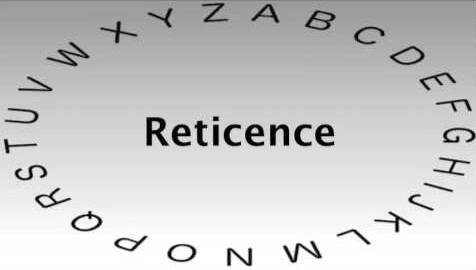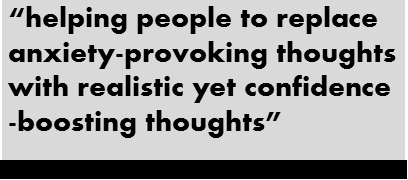Fearful of Social Ridicule? Depends on Your Personality, Researchers Find
/Your overall personality temperament may determine how reticent or fearful you are in approaching and handling new situations, academic researchers have found. Individuals who are more likely to fear being judged harshly by others are also likely to avoid, rather than be open to, new experiences “because of increased risk of behaving in ways that produce social ridicule.”
Of the five overarching personality temperaments - Extraversion, Agreeableness, Conscientiousness, Emotional Stability and Openness – two personality traits demonstrated particular sensitivity to reticence and “fear of negative evaluation,” according to the researchers at the University of Hartford and two other institutions who collaborated in the study.
The researchers explored the interrelationships of reticence and fear of negative evaluation, or negative social judgment, finding that three of the personality dimensions—Openness, Conscientiousness and Agreeableness—were not significant predictors of either reticence or fear of negative evaluation.
Highly reticent individuals appear to give significant power to others to “define their social selves,” as indicated by the direct impact of fear of negative evaluation on reticence.
Extraversion was the only personality trait that directly and negatively predicted reticence, while Emotional Stability (i.e., Neuroticism) was a direct predictor of fear of negative evaluation. The research also confirmed a strong relationship between reticence and fear of negative evaluation.
Thus, if you understand your personality type, you may better understand your likelihood to respond with reticence, hesitance or fear when confronted with a new situation.
 The “dysfunctional thinking” and anxiety due to emotional instability or the lack of openness to new experience contributes to fear of negative evaluation, the study concluded. It is this fear of potential negative social judgment that is at the heart of reticence, in which individuals believe that ‘‘it is better to remain silent than to risk appearing foolish.’’
The “dysfunctional thinking” and anxiety due to emotional instability or the lack of openness to new experience contributes to fear of negative evaluation, the study concluded. It is this fear of potential negative social judgment that is at the heart of reticence, in which individuals believe that ‘‘it is better to remain silent than to risk appearing foolish.’’
The study, conducted by communication professor Lynne Kelly of the University of Hartford, Michael Hazel of Gonzaga University and James Keaten of the University of Northern Colorado, was published recently in the journal Communication Research Reports.
To reduce reticence, what is needed in addition to communication skills training, is a focus on helping the individual develop more positive thoughts to counteract those that produce fear of negative evaluation, the researchers indicated.
“Rather than thinking ‘I might say or do the wrong thing,’ the person can be trained to think ‘I am well prepared for this meeting and have some good ideas to share,’” Kelly suggested. By helping people become better communicators and training them to replace anxiety-provoking thoughts with realistic yet confidence-boosting thoughts, they can begin to speak up in more situations.
The so-called “big five personality traits” as generally described in psychology and used in the study are:
- Extroversion – Abundant energy, and the tendency to seek engagement and the company of others.
- Agreeableness - A tendency to be compassionate and cooperative rather than suspicious and antagonistic towards others.
- Conscientiousness - A tendency to show self-discipline, act dutifully, and aim for achievement.
- Emotional Stability (neuroticism) - A tendency to easily experience unpleasant emotions such as anxiety, anger, or vulnerability.
- Openness to Experience - A person who is high in openness to experience is creative, imaginative flexible, curious and adventurous.
Study participants were undergraduate students enrolled in communication or psychology courses at a private, moderately sized western university and local community college. The survey took about 15 minutes for students to complete.
Of the 336 students who responded, 40 percent were female. Ages ranged from 17 to 56, although 81 percent of the respondents were between 18 and 21 years old. The demographic breakdown was 70 percent reported European American, 7 percent Asian Americans, 6 percent Hispanics, and 3 percent African Americans. The researchers suggest that additional research would be warranted, with the full-length version of the “Big Five” personality measures, and a more diverse population demographic.






























